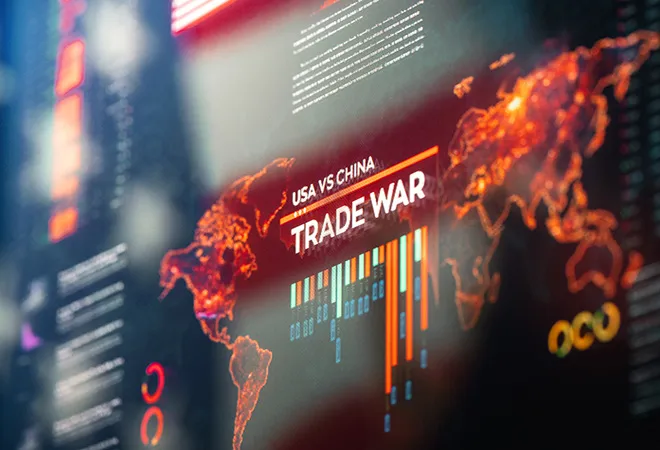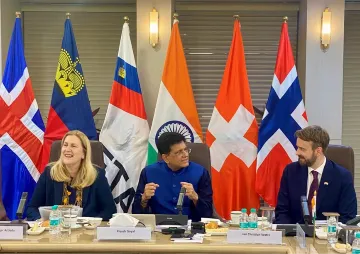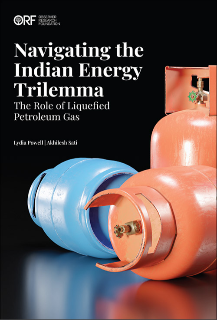
As the world moves towards the third decade of the 21st Century, the concept of globalisation as a valid economic model has come under fire. Undeniably, free global trade has delivered prosperity to hundreds of millions in the post- World War 2 era: consumers benefited from low costs and producers gained access to new markets. The detrimental effects, however, have become more pronounced over the past few years, as manufacturing centres move to new geographies and income inequality rises. The contributing factors and responses have moved the world towards increased economic instability; without considered steps to de-escalate the current geo-economic détente, a downward spiral leading to recession is increasingly likely.
The current economic situation in many developed nations is the by-product of a number of key elements. Since its inception, the social contract of Globalisation 1.0 has implicitly stipulated that the fruits of export-led growth be invested back into society in the form of education, welfare, and healthcare. The global financial crisis of the late 2000s fractured this contract across much of the Western world, with large corporations hoarding profits and governments easing tax laws to avert the prospect of an extended economic recession.
As a consequence of the fracturing of the social contract, education systems across the traditional Atlantic centres of power have suffered from a lack of funding. Public schools and universities are now finding it harder to equip the next generation of workers with the skills and abilities they need to be competitive in a global labour market.
Moreover, the advent of the 4th Industrial Revolution has placed additional strain on labour markets. Traditional employment opportunities have continued to decline, with artificial intelligence and distributed centres of production leading to a surge of automation in the manufacturing sector.
Policymakers, who have been largely content with overlooking the friction within their domestic labour markets due to trade drive economic growth, are now scrambling for solutions. Meanwhile, astute politicians have capitalised on the anxieties of the economically disenfranchised, stoking anti-globalist movements and utilising isolationist sentiments to engineer electoral victories.
The upheaval has gone beyond disturbances to domestic governance, bleeding into the arena of international relations. Leaders elected on anti-globalist movements have unsurprisingly enacted policies aimed at keeping their electorate happy. The situation is perhaps most aptly seen in the ongoing trade war between the two largest economies in the world—the United States and China. There are two distinct prisms that this conflict can be viewed through.
From the American point of view, as China has gained geopolitical power, the strategic steps it has taken have become increasingly more aggressive. As David Petraeus stated during the panel, there have been a number of grievances instigated by China – including the militarisation of manmade islands; the theft and forced transfer of patents and intellectual property; and the employment of unfair trade practices. Moreover, policies such as “Made in China” and strategic investments in certain technological sectors are clear signals that China is making overt attempts to challenge the global economic leadership established by the United States. From an American prism, its initiation of the recent trade conflict is simply a counter measure to several calculated acts of economic hostility by the Chinese government.
The Chinese interpretation of the events leading up to the trade war is significantly different. As Wang Wen stated during the panel in response to Mr. Petraeus’ statements, tension between the top two economies of the world is a natural phenomenon. In this context, the actions taken by China are neither overtly aggressive nor hostile. According to Mr. Wang Wen, despite the ongoing trade conflict, China wants to ensure that it does not initiate a ‘cold war’ with the United States. This is best signified by the lack of formal political response by China’s leadership structure to a number of incendiary statements and tweets sent out by the American President.
There are valid points made by both parties in their interpretation of the trade conflict, and it is easy to be drawn in by partisanship and propaganda. The overarching problem, however, is the fact that the trade war is economically harmful to both nations, and will in all probability only further exacerbate the economic anxiety of already disenfranchised populations within both countries. Global growth projections for the next two years have already been lowered as a result of the dispute, and a continuance of the trade barriers would result in the world becoming a “poorer and more dangerous place”, according to the Chief Economist of the IMF.
To address the fears and concerns of the people driving the current wave of populism, the core causes of income inequality need to be addressed. While it is foolish to expect a resurgence of manufacturing within the developed world, there are a number of steps that can be taken to help unemployed people from the sector, transition to other jobs. Investing money into reskilling academies and institutions that can help unemployed people learn new skills and abilities, is the first step to easing economic anxiety. Additional investment in education systems and a revamping of curriculums to include subject areas relevant to the 4th IR will reduce youth unemployment. As the economic pressure and inequality is reduced, it will allow for the most important step: the election of global leaders that are focused on good governance rather than destructive pandering to a populist electorate.
This essay originally appeared in Raisina Dialogue Conference Report 2019
The views expressed above belong to the author(s). ORF research and analyses now available on Telegram! Click here to access our curated content — blogs, longforms and interviews.




 PREV
PREV

